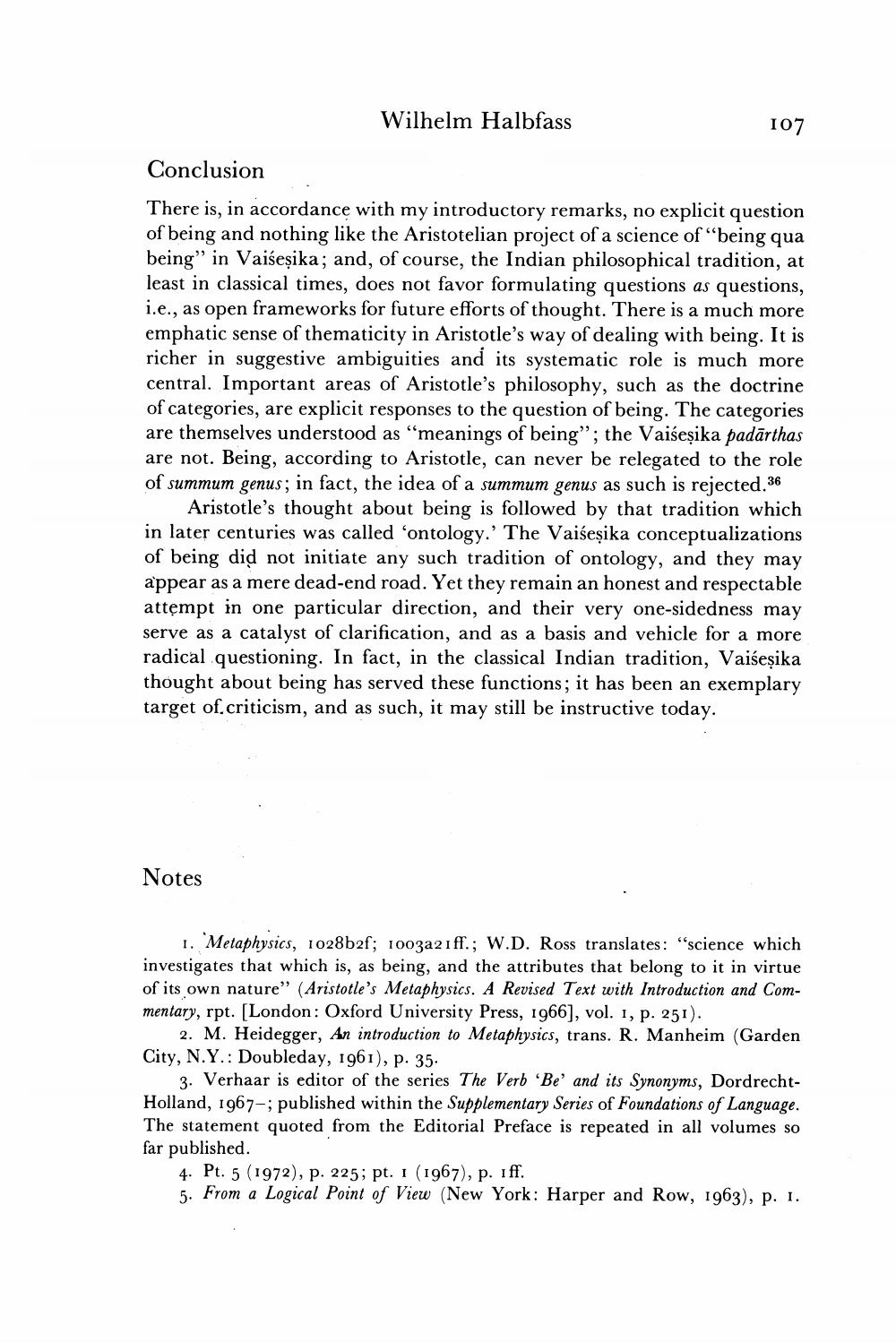________________
Wilhelm Halbfass
107
Conclusion There is, in accordance with my introductory remarks, no explicit question of being and nothing like the Aristotelian project of a science of being qua being" in Vaiseșika; and, of course, the Indian philosophical tradition, at least in classical times, does not favor formulating questions as questions, i.e., as open frameworks for future efforts of thought. There is a much more emphatic sense of thematicity in Aristotle's way of dealing with being. It is richer in suggestive ambiguities and its systematic role is much more central. Important areas of Aristotle's philosophy, such as the doctrine of categories, are explicit responses to the question of being. The categories are themselves understood as "meanings of being”; the Vaiseșika padārthas are not. Being, according to Aristotle, can never be relegated to the role of summum genus; in fact, the idea of a summum genus as such is rejected. 36
Aristotle's thought about being is followed by that tradition which in later centuries was called 'ontology.' The Vaiseșika conceptualizations of being did not initiate any such tradition of ontology, and they may appear as a mere dead-end road. Yet they remain an honest and respectable attempt in one particular direction, and their very one-sidedness may serve as a catalyst of clarification, and as a basis and vehicle for a more radical questioning. In fact, in the classical Indian tradition, Vaiseșika thought about being has served these functions; it has been an exemplary target of criticism, and as such, it may still be instructive today.
Notes
1. Metaphysics, 1028b2f; 1003a21ff.; W.D. Ross translates: "science which investigates that which is, as being, and the attributes that belong to it in virtue of its own nature" (Aristotle's Metaphysics. A Revised Text with Introduction and Commentary, rpt. (London: Oxford University Press, 1966), vol. 1, p. 251).
2. M. Heidegger, An introduction to Metaphysics, trans. R. Manheim (Garden City, N.Y.: Doubleday, 1961), p. 35.
3. Verhaar is editor of the series The Verb 'Be' and its Synonyms, DordrechtHolland, 1967–; published within the Supplementary Series of Foundations of Language. The statement quoted from the Editorial Preface is repeated in all volumes so far published.
4. Pt. 5 (1972), p. 225; pt. 1 (1967), p. iff. 5. From a Logical Point of View (New York: Harper and Row, 1963), p. 1.




